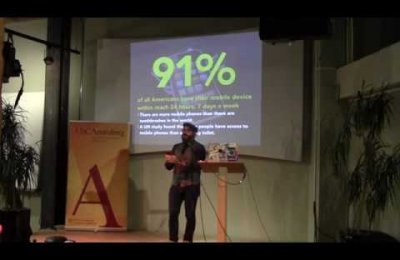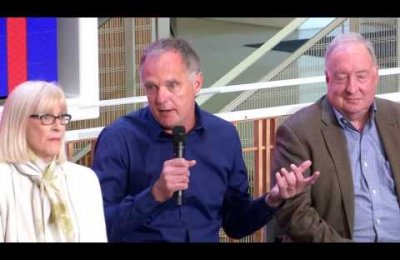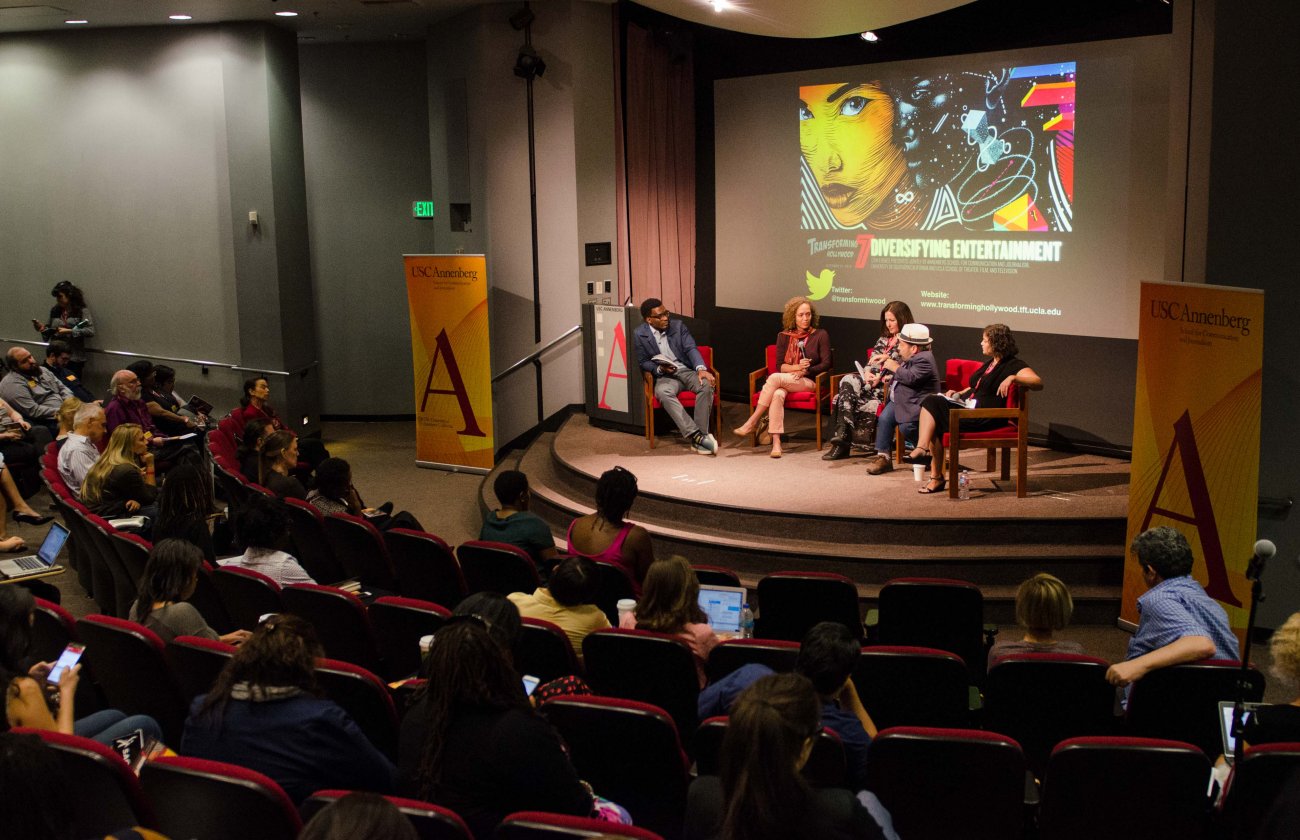At USC Annenberg, we don’t just cover the news, we make it. “Quoted: USC Annenberg in the News” gathers a selection of the week’s news stories featuring and written by Annenberg’s leaders, faculty, staff and others.
Magazine’s Account of Gang Rape on Virginia Campus Comes Under Scrutiny
The New York Times quoted USC Annenberg Associate Professor Marc Cooper in a story about the questionable reporting methods of a recent Rolling Stones piece about an alleged gang rape at the University of Virginia. The story has come under fire as the victim is only identified by her first name and no effort was made to contact her attackers. However, Cooper defended the story and said the magazine did nothing wrong by not contacting the men accused of the crime because they were not named in the story. He also pointed out that nobody would be asking questions if the article had been written as a first-person account. “I don’t think there’s nearly as much at stake as people think,” Cooper said.
Blowback: Jonah Goldberg's questioning of university rape story falls flat Diana Crandall, who is pursuing her Master’s degree in journalism at Annenberg, wrote a column for the Los Angeles Times online forum “Blowback.” She criticizes a story from Times writer Jonah Goldberg that questions the veracity of the Rolling Stones piece about an allegation of brutal rape at a University of Virginia fraternity. “Sadly, Goldberg's piece is the type of ill-informed berating that makes victims of sexual assault afraid to come forward in the first place,” Crandall wrote.
Fiber fight: Broadening broadband Gig City touted as model in broadband debate
Professor and Annenberg Innovation Lab Director Jonathan Taplin was quoted in a Bloomberg story about Chattanooga, Tenn., and their development of the first citywide gigabit-per-second broadband service in the western hemisphere. The service was developed by the city-owned Electric Brand Power (EBP), which recently partnered with the Annenberg Innovation Lab. “What we're going to try to do is bring some of the brilliant people from Warner Bros., Fox, Disney and IBM down here to Chattanooga to help them get their heads wrapped around this notion that you've got to stop worrying about scarcity,” Taplin said at a recent conference in Chattanooga on “Envisioning a Gigabit Future.” He cited a performance of “The Wild Side of Life” by Grammy Award winner T-Bone Burnett in a Los Angeles studio and BR549 founder Chuck Mead on stage in Chattanooga last year as an example. “They sang a song together over 2,000 miles apart,” Taplin said. “That's the power of gigabit Internet. I think we're just beginning to think of the possibilities of what this thing can do.”
Females in film: Less than a third of speaking characters are women, study finds
Professor Stacy Smith was interviewed by KPCC’s “Take Two” to discuss her research with Annenberg’s Media, Diversity, & Social Change Initiative about the underrepresentation of women in film. In 2013, Smith and her team found that only 29 percent of speaking characters were female. As a solution, Smith proposed adding five female characters — saying at least one line — to every film over the next four years. While some would call that “less than ambitious,” she said, “It’s really important because you have to look at all the different levers that you’re going to have to pull and push in Hollywood to create change.” She added that the film industry is seeing the importance of female leads with films such as “The Hunger Games” and “The Fault in Our Stars,” but “when it comes to the entire demography of a story, there’s no reason why it can’t match the population.” Smith’s research was also cited in a story from the Atlantic.
Can Glass Genius Save Google Glass?
Professor Robert Hernandez’s journalism course on Google Glass was featured in West Journal. The story highlights Google Genius, the app created by the class this semester. Also known as “The Real-Time Audio Knowledge Engine,” the app detects key words being said aloud by the user and anyone they’re talking to and will display content related to the topic, with resized text and images for the smaller screen. But Hernandez said, while the class was excited to build the app, “the goal of this class was bringing three different types of cultures together, and having them collaborate and work and get excited and build one bigger inclusive community and culture.” The class was made up of journalists, developers and what Hernandez called the “misfits,” which were public relations students, web developers and entrepreneurs. Hernandez also admitted — like many others have — that Google Glass has lost steam and is struggling to maintain relevance. “The biggest challenge isn’t the hardware or the battery life, it’s the social acceptance,” he concluded.
Karen North, director of Annenberg’s Digital Social Media program, was quoted in a BBC story about the celebrity power of internet sensation Grumpy Cat, which she described as “phenomenally successful.” “One of the most popular activities online is displaying images with snarky captions,” North said. “People take an event or a piece of media or an image on a digital platform and they mash it up, or they parody it or they adapt it.” But, she questioned the staying power of internet celebrities, comparing them with “enduring images” like Hello Kitty and Garfield. North added, “The world audience is somewhat fickle. Most of these characters don’t live on for a long time. They’re a fad. That’s why agencies are coming in to try to manage the brand.”
LA needs a Department of Interstitial Spaces
LA Observed featured passages from Assistant Dean of Public Affairs and Special Events Jeremy Rosenberg’s new book “Under Spring,” which “chronicles the extraordinary history of the transformation of the space under the Spring Street bridge between 2006 and 2013.” The passages included quotes from Annenberg Professor Manuel Castells. “This site in general, and Los Angeles in particular, is so full of destitute people and destitute places that the effort to rescue these destitute places and regenerate them is probably one of the most crucial projects,” Castells told Rosenberg, for “a new kind of city and a new kind of society. Because we have made too much use of a policy of scorched lands in our cities. We'll call it a disposable city. You use it and throw it away.” However, Castells added, “another city is possible, and even in Los Angeles, another Los Angeles is possible.”
Professor Martin Kaplan wrote a story in the Jewish Journal about the lyrics Pat Boone wrote using the theme song heard in the 1960 film “Exodus.” Boone wrote the lyrics a year after the film release and titled the ballad “The Exodus Song.” It became an instant hit for musical artist Andy Williams. Kaplan focused on the lyrics and cited that “some people embrace the literal meaning” behind them. He used the line “God gave this land to me,” as a primary example. In the story he also used Nina Paley’s 2012 animation — which shows a succession of cultural groups conquering each other — as an example to demonstrate how others have “also [believed] this land is theirs.” “This openness to historical reality doesn’t diminish the idealism and right to self-determination of that nation’s founders, doesn’t mitigate the horror of the Holocaust that impelled its establishment, doesn’t accept the tragic spiral of terror and counterterror visited on its inhabitants,” Kaplan said. “But it does make it harder to hold fast to origin stories in which right always battles wrong and never battles right.” Kaplan ended by saying that people believe stories whether they are true or not. Although he would like to continue singing the “The Exodus Song” because he thinks it’s a powerful origin story, he believes that “a fable is not a fix.”









